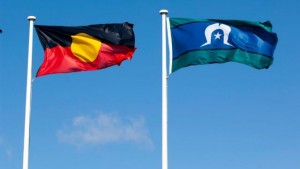Home » Commentary » Opinion » Power, inclusion and exclusion; my concerns about a ‘Voice’
· NITV SBS Online
 The Uluru Statement of the Heart proposes a ‘Voice’ representing Indigenous Australians be enshrined within the constitution, to enable Aboriginal and Torres Strait Islander peoples to be formally consulted on legislation and policy affecting their communities.
The Uluru Statement of the Heart proposes a ‘Voice’ representing Indigenous Australians be enshrined within the constitution, to enable Aboriginal and Torres Strait Islander peoples to be formally consulted on legislation and policy affecting their communities.
Minister for Indigenous Australians, Ken Wyatt has suggested such a ‘Voice’ could be legislated rather than embedded within our constitution.
However, before we debate how, and in what form a ‘Voice’ might be implemented, we need to discuss some important aspects.
The first matter of concern, who was representing me when the all big decisions were being made?
Going back to 2017 when the First Nations National Constitutional Convention was held at Uluru, the representatives in attendance were invited by nominees of the Referendum Council; and not elected by Indigenous people.
Much of the media attention has ignored the fact that there were and still are dissenting – and unheard – Indigenous voices throughout the entire process of the development of the Uluru Statement of the Heart.
Secondly, for far too long Aboriginal people have been portrayed as being one homogenous group of people who all think the same; and the Uluru Statement has now further entrenched this idea. The reality is, this could not be further from the truth.
We don’t have one voice and we never have. This has been a construct that undermines us.
The Palawa of Tasmania have real, genuine problems that need to be addressed. At the other end of the country, the Tiwi also have real, genuine problems that need to be addressed. And in the middle there are the Warlpiri, with their own set of real problems. And many other group with their own problems as well.
To try to put them all in the one basket and to treat them as if they are all the same is a grotesque denial of their rights to see themselves as different and distinct linguistic and cultural groups, with their own distinct histories of contact with Europeans and experience of colonisation.
We would not want to send Tiwi and Warlpiri to Tasmania to sort out their problems for them and we wouldn’t expect Palawa to come to the NT to sort out the problems of remote communities. Each of these groups are the only ones who can solve their own problems in their own unique way.
And what of our non-Indigenous loved ones and relatives. A clear majority of those who identify as Indigenous now have children with those who don’t. In the southern cities of Sydney and Melbourne, over 80% of Indigenous people are coupled with non-Indigenous partners and have children. Roughly the same percentage of their children identify as Indigenous.
Do our non-Indigenous loved ones have no say in the future of their own children and grandchildren?
Thirdly, as Indigenous people, we all know that those with powerful positions within our communities tend to have most of the resources and most of the control. Those who have managed to take advantage of the plentiful resources available in the Aboriginal industry have done so without effecting much change for the most vulnerable.
Do we imagine that a ‘Voice’ will empower the marginalised or will it entrench those who already maintain control of the resources that flow into Aboriginal disadvantage? While there are many community controlled organisations working tirelessly to stem disadvantage, we are acutely aware of those embedded within some Aboriginal organisations and institutions, who are there for their own personal and financial gains.
Will yet another bureaucracy such as a legislated ‘Voice’ simply give more power to those who haven’t yet demonstrated that they can solve the critical issues our marginalised Australians are faced with?
Truth telling is as much a responsibility we should put upon ourselves as it is for our entire nation in understanding our combined history. The real question — which did not appear in the Uluru Statement — is ‘what are we going to do for ourselves?’
In practical terms, stripping back bureaucracy to support grassroots decision-making from community to community suggests real empowerment — as opposed to an umbrella ‘Voice’ that we will never truly gain consensus on, because we are not simply one people.
These issues require robust debate so as not to push this process along blindly, and then suffer the consequences later.
Power, inclusion and exclusion; my concerns about a ‘Voice’